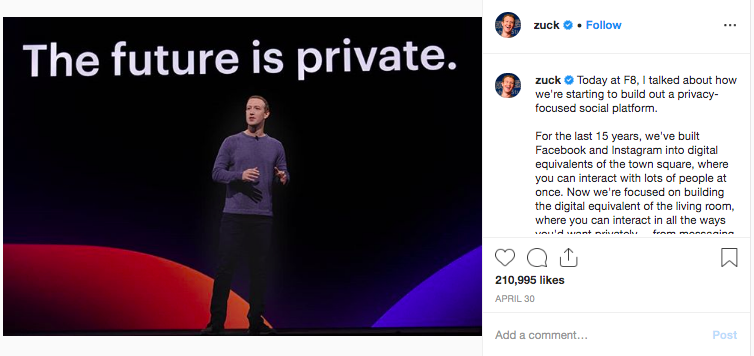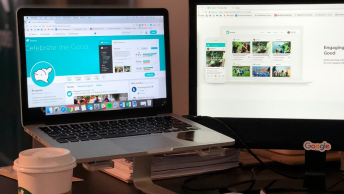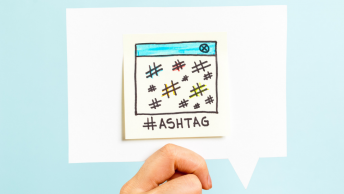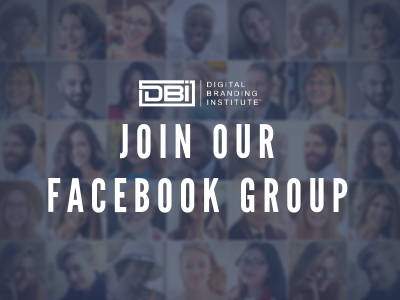Facebook is rolling out some sweeping changes its business tools, including messenger bot rules, and platform in general. While many marketers feel that they are doing this just to make things difficult for them, there is a lot more to it than that.
In this blog post, we take a look at why Facebook is making these changes and what exactly they are so you can be ready to tackle them head-on.
The Timeline
Keep in mind that these updates will not go into effect until January 15th, 2020. While many marketers have already started to panic about them, there are a good few months before they happen. However, it is important to keep them in mind as you plan ahead.
Many people who use third-party tools, like MobileMonkey, have been particularly uncomfortable with these updates. There has been a concern that their current tools will be rendered totally useless suddenly by Facebook’s updates.
Don’t Panic

This is not the case at all. The updates will affect the types of messenger ads you can send, and the time in which you can send them, but not what outside you can use with it.
While many marketers have been afraid that the updates will knock out their current favorite ad tools, this is actually a misunderstanding. Facebook is tweaking current ad formats and rolling out new kinds of ads. It is not introducing a free tool it will force marketers to use if they wish to do business on their platform.
The Types of Ads You Can Run
In terms of updates, there will be three main types of ads you can run through Facebook messenger.
These include JSON ads. JSON is an acronym for “JavaScript Object Notation”. This open standard data format uses objects made from key/value pairs in order to be easily readable. The JSON format is a technique to deliver ads right into a publisher’s system. In Facebook, these ads appear when you click a button within the timeline. They then open up right into messenger.
You can also run Visual JSON ads, which utilize keywords. Facebook is also updating its lead automation generation flows. All of these are relatively simple to set up.
The Pros And Cons
These updates present some unique opportunities and challenges to social media marketers. However, how exactly they will affect you depends on how tech-savvy you are and your goals.
The Potential For More Qualified Leads
These updates may help businesses cultivate more qualified leads using messenger. This is because it allows you to both target appropriate leads and makes conversation lead to conversion. Importantly, it also disqualifies leads that do not fit. Also, it will send warm leads reminders to finish things up in 24 hours if they do not on their own.
Lower Cost (For Now)
These new and refined ad types are new. They will likely cost less when they are new. However, as they become more widespread mainstays, it is likely that Facebook will raise their prices. The company is known to do this.
A Question Of Audience
It is important to take into consideration that while it is easier to get people to notice a scrolling or banner ad as they browse sites or engage with content, it is harder to get them into Facebook Messenger to chat directly with your brand.
In order to test out what exactly works for you in this capacity, you will likely need a large audience and budget, as most of your following will not engage with you via messenger.
SEE ALSO: 10 Tips to Improve Your Facebook Ad Conversions
JSON Ad Glitches
At present, the Facebook ad platform has some glitches to work through. The most popular type of ads used on the platform are JSON ads, and the platform is notoriously glitchy when it comes to handling them.
This is a common complaint amongst marketers and many want Facebook to work on fixing it. However, on the positive side, Facebook is currently working on adding more options to businesses on the paid side.
The Appointment Booking Tool
At F8, Facebook’s annual developer conference, they announced that they are rolling out an appointment booking tool in messenger. Whether or not this will benefit you largely depends on whether your business already uses an appointment booking tool or not.
Who It Works For
If you are not particularly tech-savvy, do not want to invest in paid scheduling tools, or do not already use a scheduling tool like Calendly or Acuity at all, it will be a great tool to help you stay on task and organized.
Also, it is easy to set up and ties into other service offerings that you have on your Facebook page. It can display your hours to clients who visit your page as well. Ultimately, if you are not a bot builder or user with pre-existing scheduling tools, and you want a quick and easy solution that integrates well with what you already have, it is a solid choice.
The Negatives
However, keep in mind that some experts are saying that it has some issues, and other scheduling tools just work better. Bot builders, in particular, are having some issues with this new tool. They say it interferes with other Facebook messenger bots, causes glitches, and tends to pop up demanding that you schedule things at very inconvenient times.
Updates To Standard Messaging
Prior to F8, there were relatively few restrictions when it came to what and when marketers could communicate via messenger. However, going into the summer, there was the 24+1 rule when it came to Facebook messenger bots.
The 24+1 Rule
This rule was that in the first 24 hours after a customer opts in to receiving messages from your business and interacts with the bot, a business has 24 hours to respond. After this time has expired, the bot can still send Facebook users 1 non-promotional message. This is the “+1” aspect of the rule.
During the 24 hours, a business can send as much promotional content as they want. However, if they overdo it, it is likely that whoever opted in will find them annoying and block them. This rule would reset every time a user interacted with a Facebook Messenger bot.
However, as of January 2020, the “+1” is vanishing. And this is not all that is changing.
Tags
While many marketers are unhappy about the disappearance of the +1 from the 21+1 rule, few are complaining about the upcoming update to tags.
Previously, there were 17 different tags marketers could choose from, which many found overwhelming and needlessly confusing. The platform is now narrowing things to only 4 tags. They are:
- Post-purchase updates
- Event reminders
- Account updates
- Human Agent
Keep in mind that the human agent option is, at present, in closed beta. This means that most people cannot access it yet. Your messages must use one of these tags and be sent within 24 hours of the first interaction with a Facebook user in the chat.
Say Goodbye to Facebook Subscription Messaging and the Discover Tab

Remember in 2018 when businesses were scrambling to apply and get approved for Facebook subscription messaging? Some businesses spent a lot of time submitting application after application only to get rejected again and again.
Even if you got accepted, you will likely lose access to it in January. All businesses that are not verified news agencies will lose access.
The Discover Tab, which was meant to show users products and businesses they might like, is also going away. This is because of low use.
Why All The Changes?
Many marketers feel that this is a money-grab on the part of Facebook, or that the platform is just trying to make their lives harder. It is actually a lot more complex than that. Over the past few years, Facebook has made a series of sweeping changes in response to widespread criticism about the platform. We have explored the causes and effects of many of these on our blog.
SEE ALSO: How to Prepare for the Facebook Newsfeed Update
The Integrity of the Platform
What it actually comes down to is protecting the integrity of the platform, which actually benefits marketers in the long run. If people are abusing the system and using bots to spam people on messenger, this will inevitably drive people away from the platform. If no one uses messenger because it has become too annoying, marketers will not be able to leverage it.
At present, there are 20 billion messages on Facebook between business pages and consumers. Especially since, unlike email, Facebook Messenger does not have filters enabled, this is a lot for people to deal with.
The Failure of Facebook Messenger Bots
Also, Facebook messenger bots have hit a 70% failure rate. People do not like them and are avoiding them because they find them annoying or not useful. This is a huge issue.
So, it is actually great that Facebook admits this and is working to fix it. If people avoid using messenger and interaction with Facebook messenger bots, marketers lose out in a big way.
An Emphasis On Privacy and the Individual

Facebook knows that its reputation has taken a beating for privacy issues. They know that people often criticize it for becoming cluttered and stressful. It is also struggling to keep younger social media users on board. It has been trying to cope with this in various ways, such as adding the Stories feature.
Facebook is working to fix all of that by focusing on one-on-one interaction, adding encryption, and finding ways to declutter their platform by making it responsive to the individual interests of users.
Since marketers benefit when people stay engaged and using Facebook, ultimately, these are positives.
Final Thoughts
Facebook is making some big changes. While they might seem confusing and overwhelming, ultimately they are being made to correct issues that are making people not want to use the platform. The changes to Facebook messenger bots and business tools will hopefully benefit both marketers and social media users.
The bottom line is that marketers need people to enjoy using the site and messenger. They also need people to be open to interacting with Facebook messenger bots. Hopefully, these changes will help create that environment on the platform.
Which of these changes are you looking forward to the most? Which are you the least excited about? Comment below…











